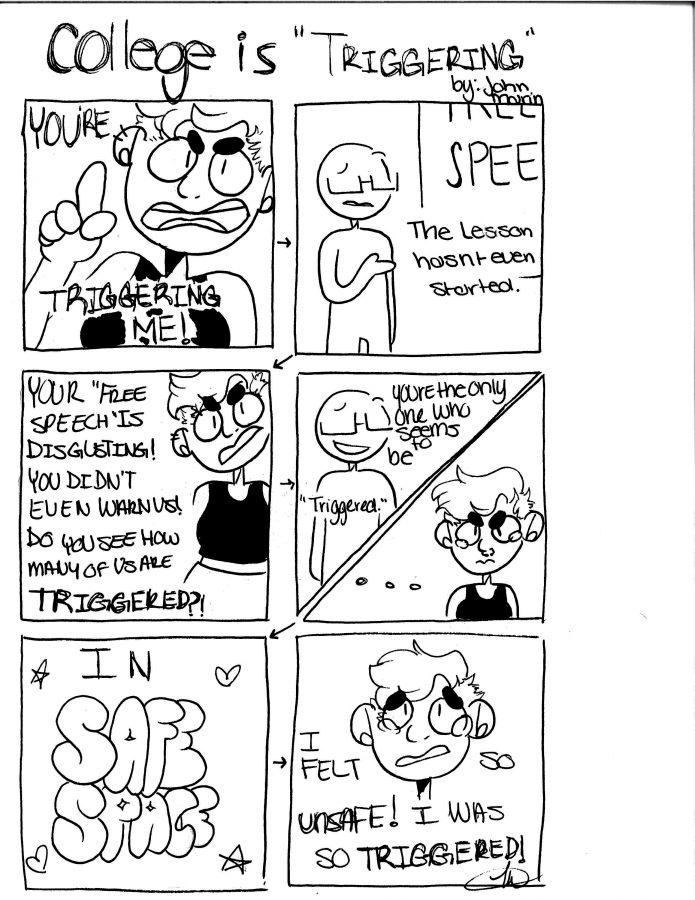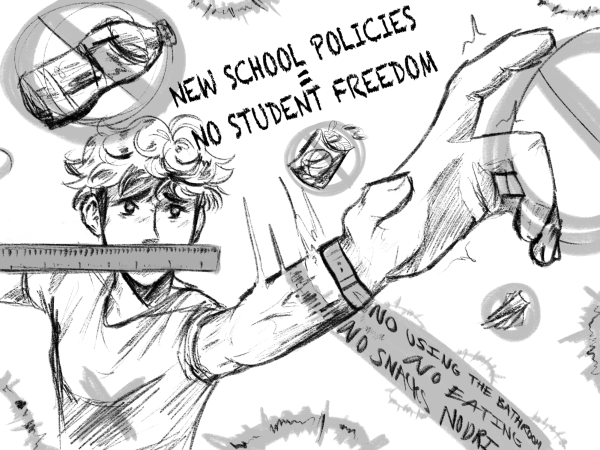Safe spaces prevent learning environments
October 27, 2016
The University of Chicago is taking a stand on freedom of speech while other colleges are compromising it. At the beginning of the school year, U. of C. sent out letters to their students saying they won’t provide trigger warnings and safe spaces on campus.
Trigger warnings are usually given before a sensitive topic for students who are vulnerable to certain subjects like racism, sexual assault, or even just different forms of thinking.
We agree with U. of C. who believes “that all expression deserves protection, as long as it isn’t a genuine threat or doesn’t violate the law.”
Trigger warnings and safe spaces seem to only be sheltering students from the real world. College should be a place for students to step out of their boundaries and be exposed to new ideas and different forms of thinking. If a student cannot simply listen to different ideas, how are they supposed to grow and learn?
Listening to opposing ideas doesn’t necessarily mean that students will completely change their stand on issues, but they will be able to see both sides of a situation.
Earlier this year, DePaul hosted controversial speaker, Milo Yiannopoulous, who was shut down by protesters who jumped on stage and took the microphone away because they felt his comments were offensive. DePaul later denied having him back on campus for the fall.
In contrast to DePaul, the former U. of C. school president claims that the cure for offensive ideas lies through open discussion rather than through inhibition.
Some people may say that not protecting certain vulnerable students from offensive speech is insensitive, but we view it as a learning experience.
Additionally, while U. of C. isn’t supporting trigger warnings, professors still have the choice to include them whenever they cover certain topics in class, thereby protecting students when they are a captive audience.
Overall, free speech is a privilege we hope all colleges will soon embrace once again.









